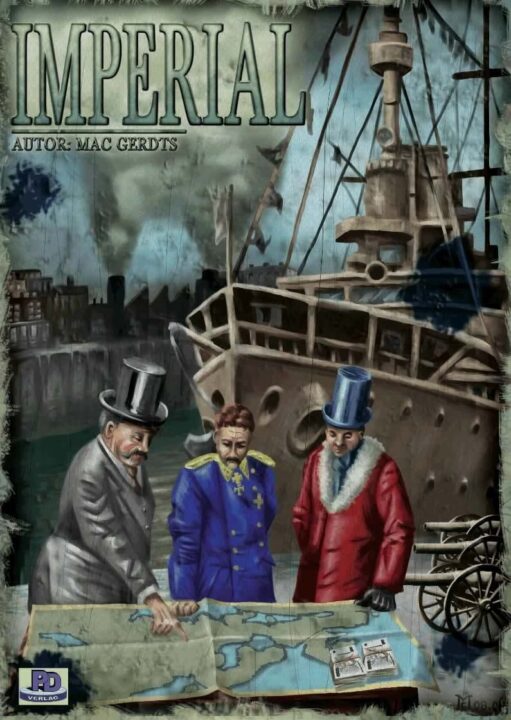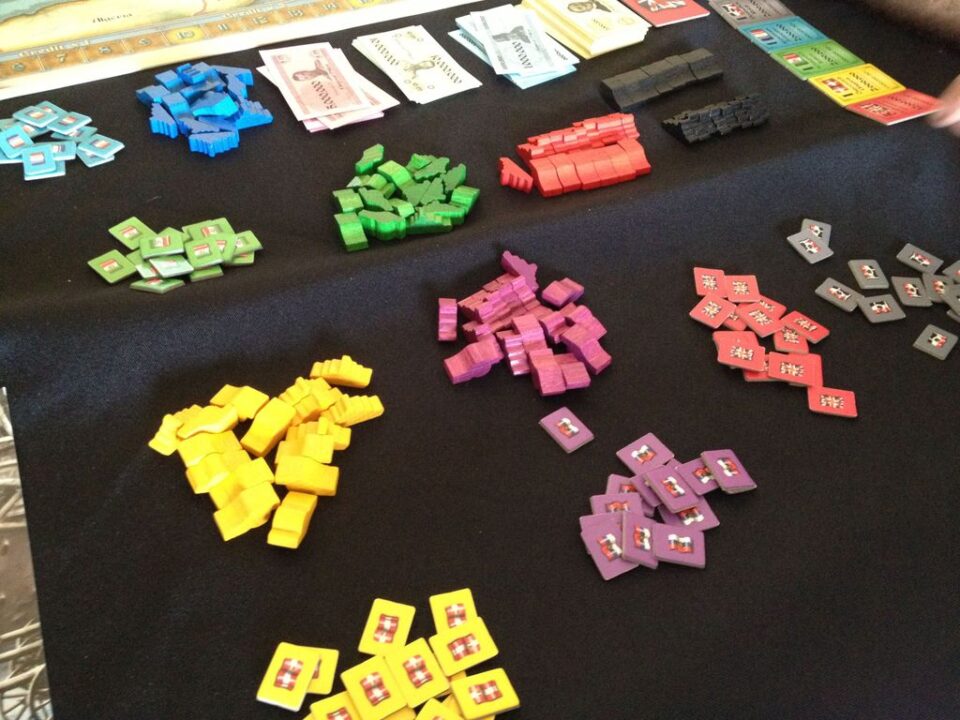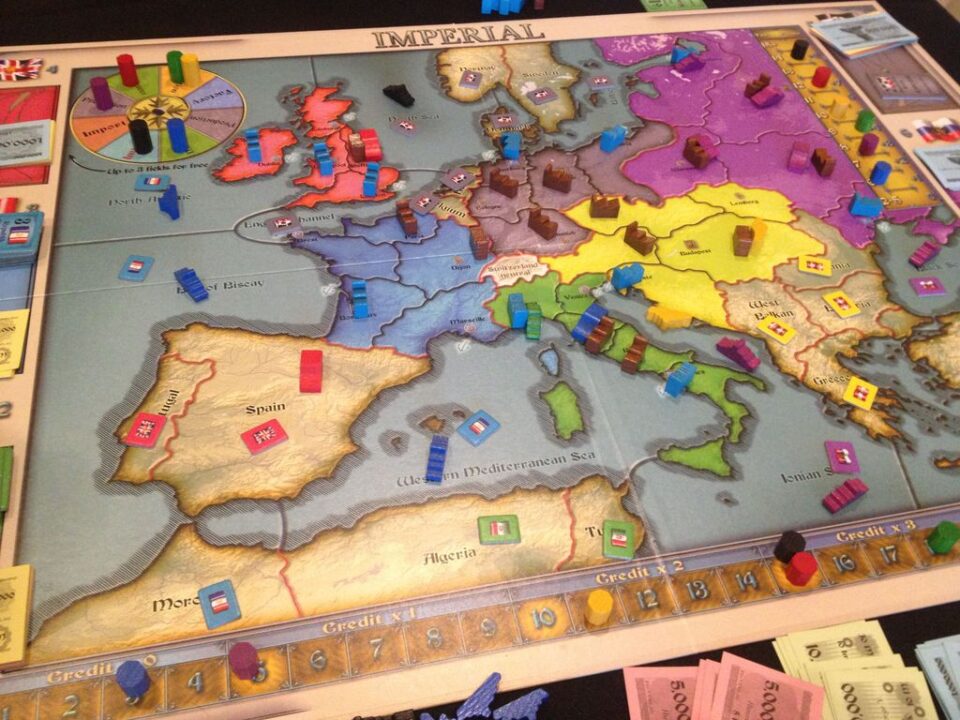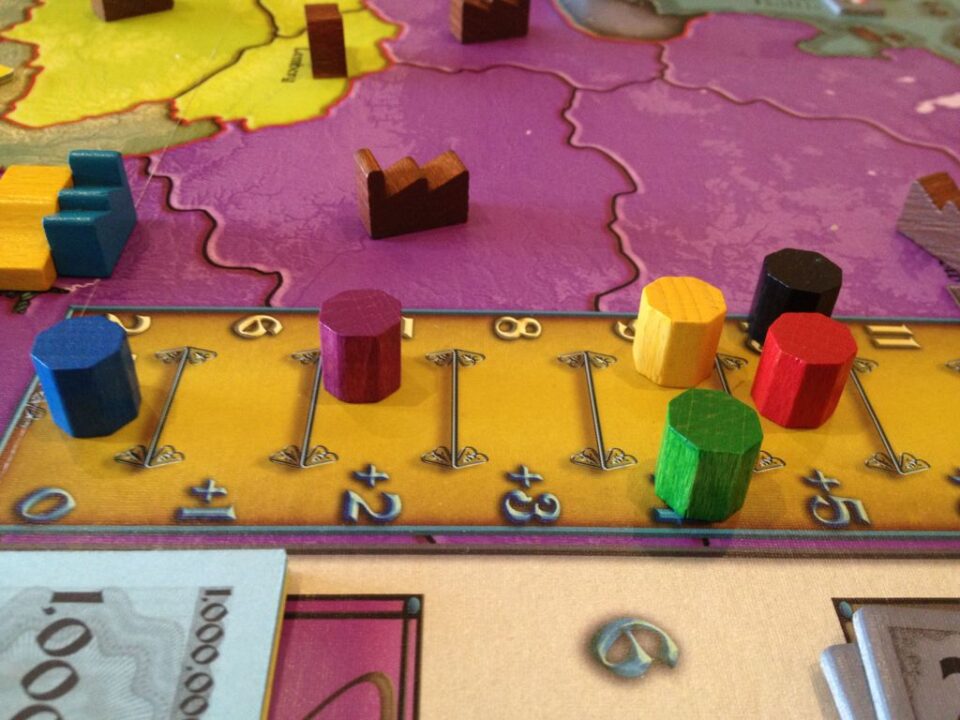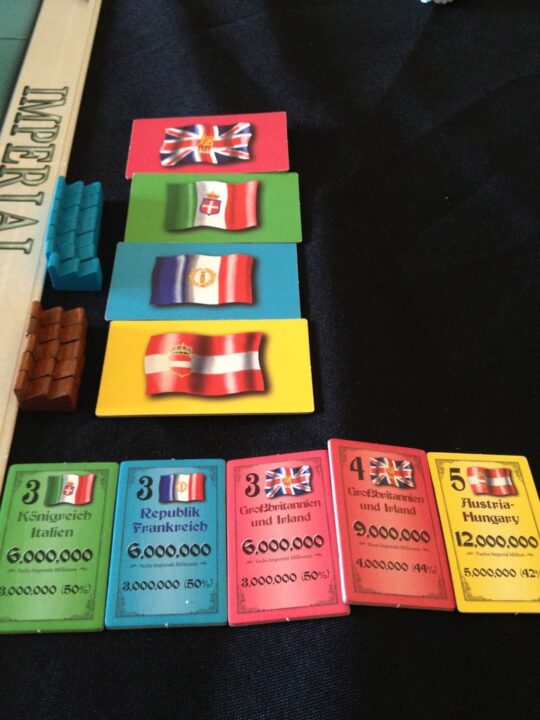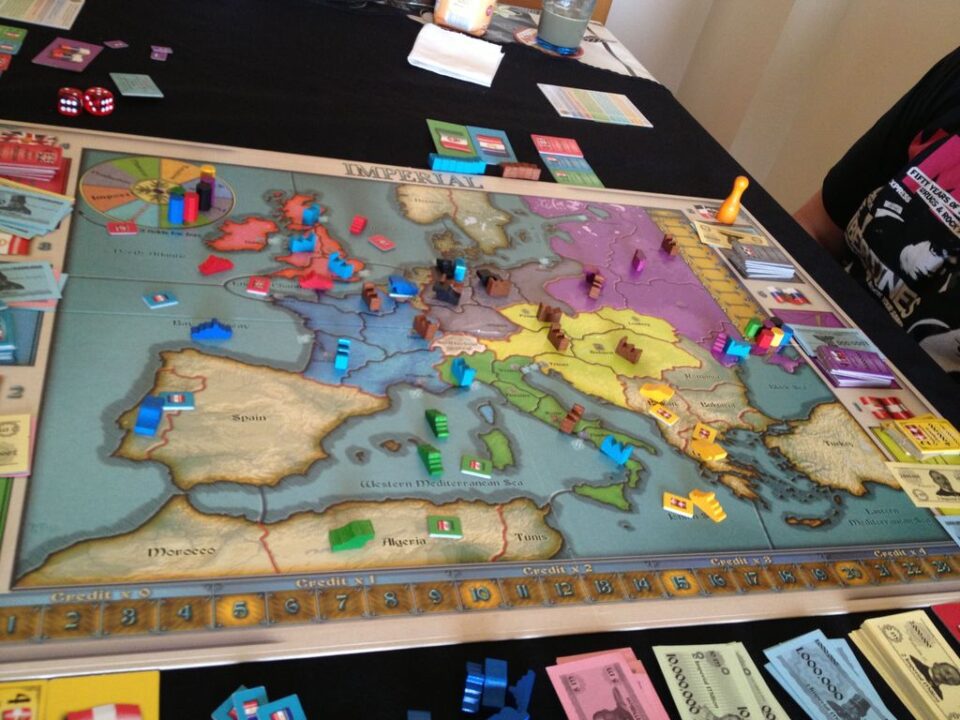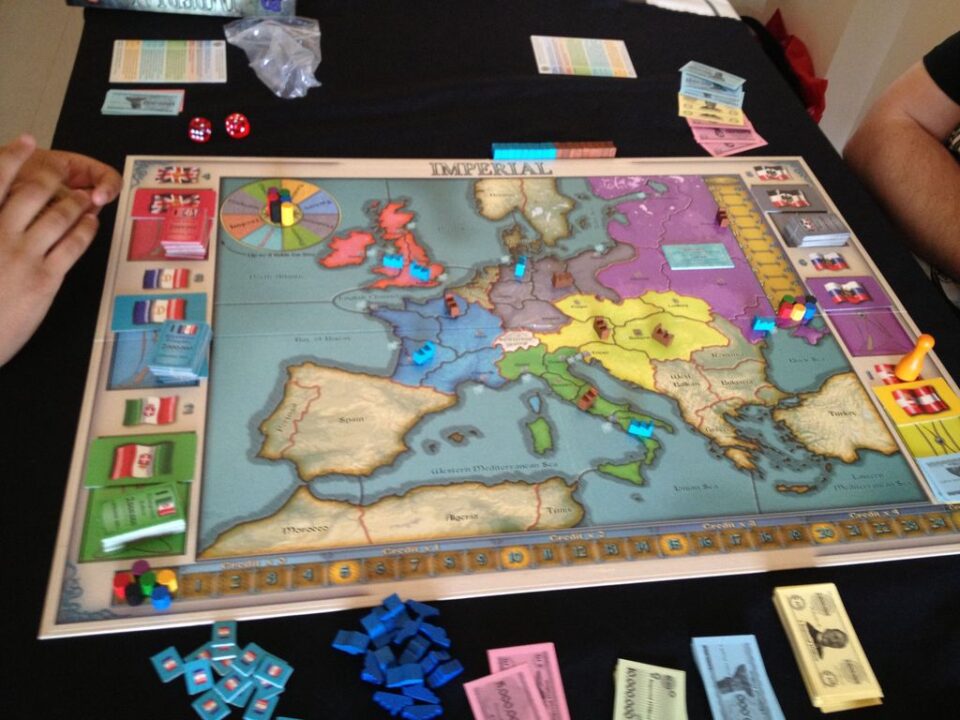Overview
Hey there, fellow board game enthusiasts! Jamie here, bringing you a fresh review of the intriguing game of ‘Imperial‘. Strap in as we dissect this strategic behemoth, teasing out what makes it tick, and whether it earns a prime spot on your game night shelf. From its steep learning curve to its replayability, I’ve got you covered. Let’s get the dice rolling!
How It Plays
Alright folks, let’s get into the nitty-gritty of how ‘Imperial’ rolls out. We’re talking money, power, and a map that looks like a history lesson gone wild. Grab your friends, but leave your trust at the door; this game is about cunning strategy and a dash of backstabbery.
Setting up
Setting up ‘Imperial’ is like planning a military campaign. You’ve got a big ol’ map of Europe, loads of tiny armies and fleets, and some serious bonds to dish out. Each player picks a nation, but here’s the kicker: you might not control it for long. Get your pieces on the board, shuffle those action cards, and stack that money. You’re going to need it!
Gameplay
‘Imperial’ gameplay is like chess on steroids. Players don’t just represent countries; they’re investors! You invest in countries, and if you’ve got the most bonds, you’re the boss. Move pieces, start scuffles, collect taxes, and pay dividends. Remember, it’s all about the Benjamins and making sure your investments pay off. The twist? Your loyalties can change faster than socks, depending on who controls the biggest share of each country.
Winning the game
Winning ‘Imperial’ isn’t about conquering; it’s about cashing in. The game ends when a country pays out its final dividend, and players tally up their wealth. It’s not just about the territories you control; it’s about the bonds you own and the dividends they rake in. The richest player at the end rules the roost—and the bank account. So sharpen your financial acumen, because in ‘Imperial’, cash is king.
Want to know more? Read our extensive strategy guide for Imperial.
Unveil the Strategic Depths of Imperial
When you sit down to play Imperial, you’re not just playing a game; you’re diving into a complex world of strategy and decision-making. Every move counts, and it feels like steering a giant ship through a maze of economic pitfalls and military maneuvers. Here’s the kicker: your choices don’t just affect your immediate surroundings but ripple across the entire game board. The real beauty of Imperial lies in its ability to make you feel like a chess grandmaster and a tycoon at the same time. You’re constantly weighing options, making tough calls, and predicting your opponents’ moves. It’s a mental workout that leaves you satisfied no matter the outcome.
And just when you think you’ve got it all figured out, the game throws another curveball: ensuring gameplay balance and fairness. Stick around to see how Imperial keeps all players on their toes.
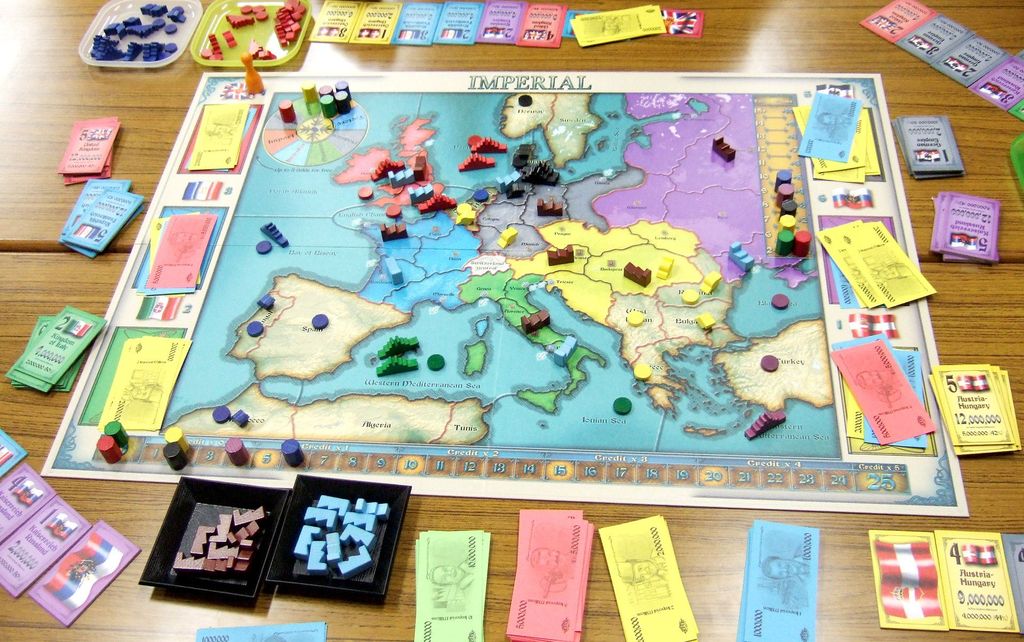
Gameplay Balance in Imperial: Fair or Foul?
When it comes to board games, ‘Imperial’ really knows how to keep the scales even. It’s like the game has its own built-in justice system. Every player starts on a level playing field, which means nobody gets an unfair advantage right out of the gate. This isn’t one of those games where you can blame your loss on bad starting positions or unbalanced powers. Nope, in ‘Imperial,’ if you’re lagging behind, you’ve only got your strategies (or lack thereof) to blame.
That said, ‘Imperial’ isn’t afraid to challenge your sense of fairness. The game mechanics ensure that every move could tip the balance of power, making alliances as fragile as my grandma’s china plates. It’s a beautiful ballet of diplomacy and betrayal where only the most cunning will thrive. But don’t let that scare you off; it’s all in good fun, and you’ll quickly learn that adaptability is your best friend.
Speaking of adaptability, let’s not forget that every great game has a learning curve. Stick around as we’ll tackle the learning curve and accessibility of ‘Imperial’ next.
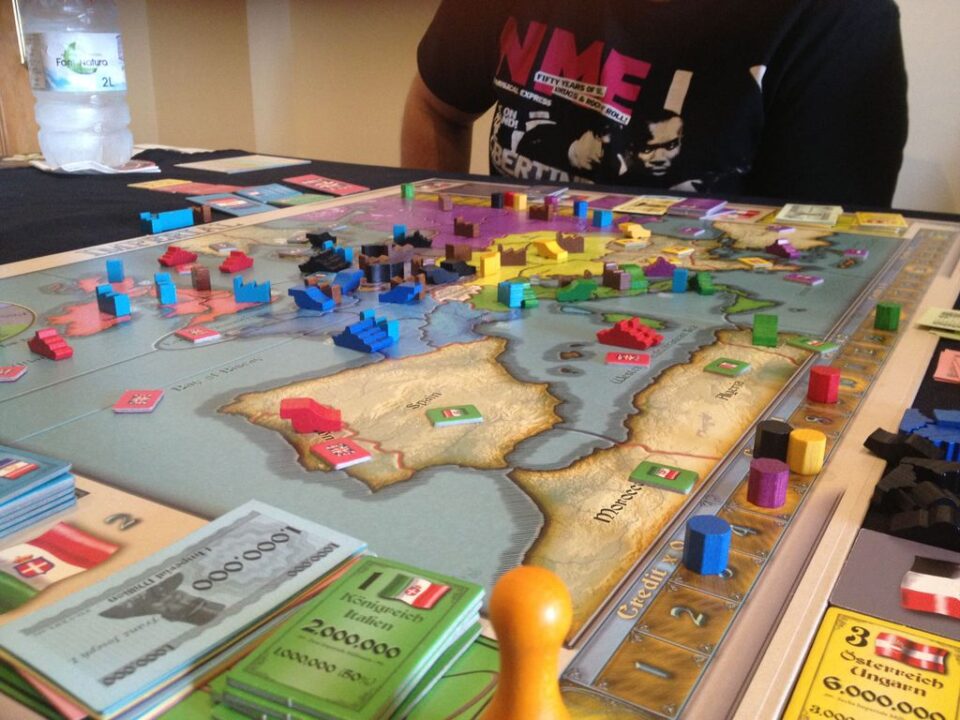
Mastering the Rules: Navigating Imperial’s Learning Curve
Let’s get one thing straight – ‘Imperial’ isn’t your run-of-the-mill board game that you can just pick up and play without a second thought. Oh no, this game throws you into the deep end of economic strategies and military tactics faster than you can say
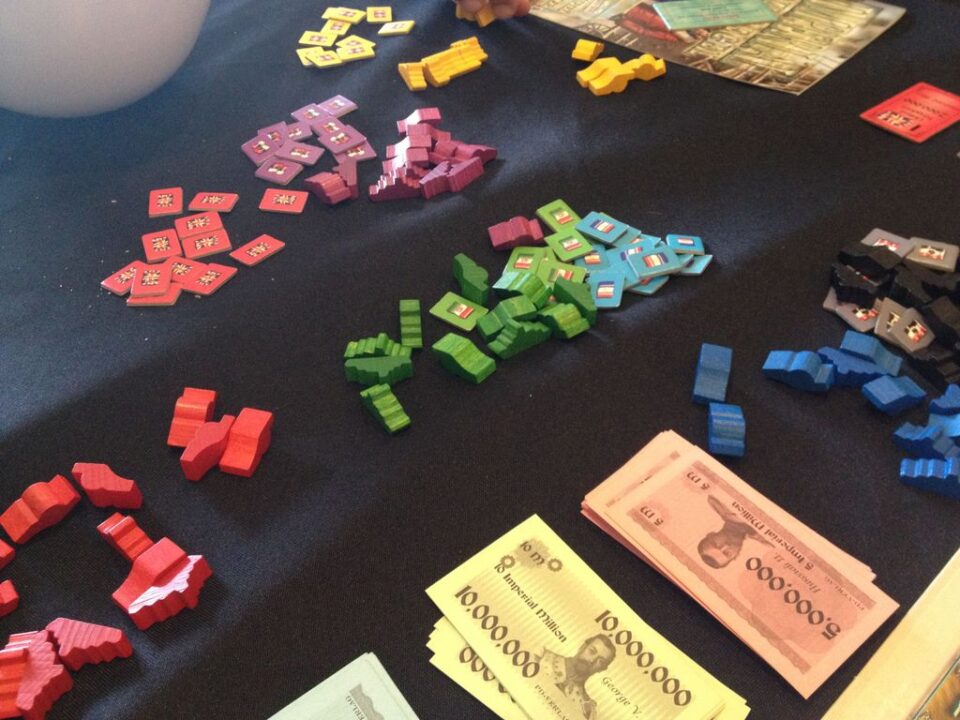
Unpacking the Replay Value and Variability of ‘Imperial’
When it comes to board games that keep you coming back for more, ‘Imperial’ is a shining example. What makes ‘Imperial’ stand out in the sea of strategy games isn’t just its strategic depth or the initial challenge – it’s the immense replay value and variability it offers. Every game of ‘Imperial’ feels like a new challenge, thanks to its dynamic gameplay mechanics and the way player decisions ripple through the economy and military aspects of the game.
Unlike some strategy games where once you crack the code, you’ve seen it all, ‘Imperial’ keeps you on your toes. The game’s design cleverly integrates varying starting conditions and strategic options, ensuring that no two games are ever the same. Whether you’re maneuvering for economic dominance or military superiority, ‘Imperial’ offers a fresh experience each time.
If you’re looking for a game that promises variety and challenges your strategic thinking every time you play, ‘Imperial’ is a solid choice. I highly recommend it for anyone looking for a game with high replay value and variability.
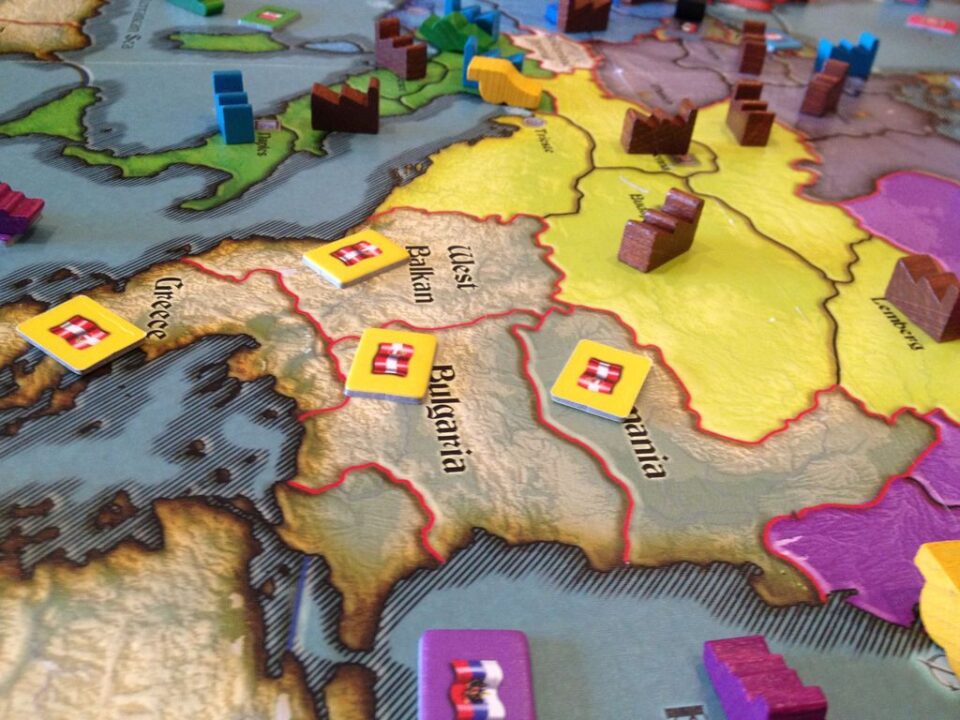
Conclusion
Wrapping up, ‘Imperial’ hits the sweet spot for gamers who love a blend of strategy, economics, and a hint of military tactics, without letting luck dictate the outcome. The steep learning curve might intimidate newbies, but once you get the hang of it, you’ll find yourself plotting to take over the world (or at least the game’s version of it) every game night. With its balanced gameplay and endless replayability, ‘Imperial’ earns a solid spot on the shelf. Whether you’re a seasoned strategist or looking to step up your game, ‘Imperial’ promises deep dives into the world of finance and conquest, making each game a fresh challenge. As we conclude this review, remember: in ‘Imperial,’ you’re not just playing the game; you’re mastering the art of strategy and diplomacy. Now, go forth and conquer!

